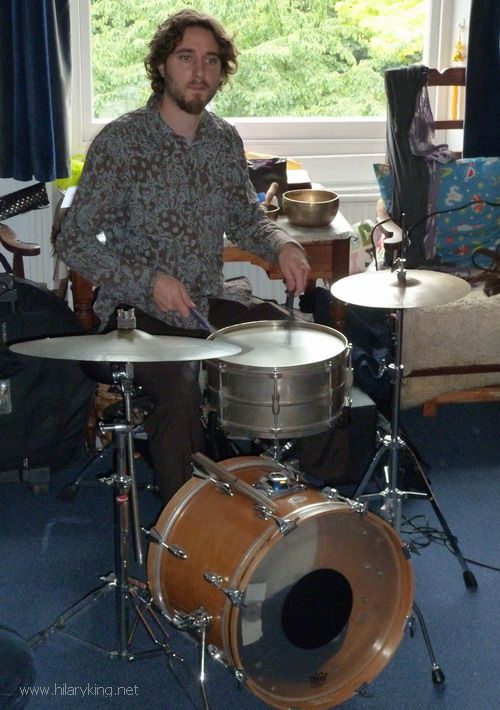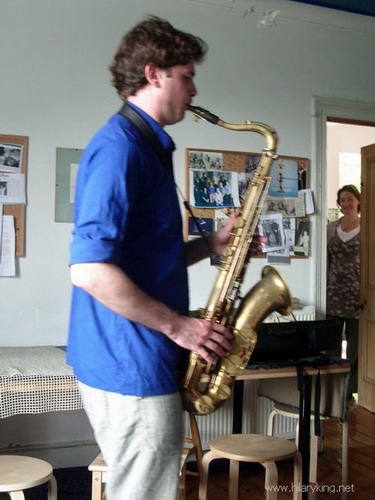Tim Giles, award-winning Composer and Jazz Drummer – and now Alexander Teacher.
Tim Giles has just graduated (July 2011) from LCATT, the local Alexander Technique Teacher Training School where I am a visiting teacher. He is seen here playing at LCATT’s end of term party.Tim was one of my Alexander pupils before he joined the STAT recognised Training Course and it is great to see him qualify as an AT teacher.
I am pleased to say that Tim will be assisting me with the upcoming Short Intro Course in September – which means that participants will be able to have hands-on work both from myself and from Tim.
This introductory course is for a small group, so if you are interested in attending, please note that it is essential to enrol in advance.
Earlybird Reduced Fee is available if you pay before 30th August

 seen here at the end of term party, graduated as an Alexander Technique teacher from the London Centre for Alexander Teaching and Training, LCATT, where I am one of the visiting teachers.
seen here at the end of term party, graduated as an Alexander Technique teacher from the London Centre for Alexander Teaching and Training, LCATT, where I am one of the visiting teachers.